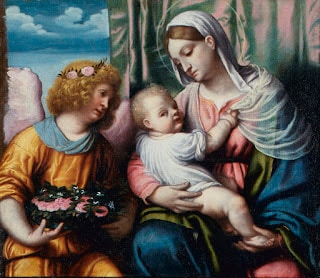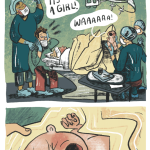Why Are Catholics Against IVF? A Deep Dive into Faith, Ethics, and Modern Science
In vitro fertilization (IVF) has become a beacon of hope for millions of couples struggling with infertility. Since the birth of the first “test-tube baby,” Louise Brown, in 1978, over 12 million children have been born through this technology worldwide. For many, it’s a miracle of modern medicine. Yet, for Catholics, IVF raises profound moral questions that clash with deeply held beliefs about life, love, and the natural order. If you’ve ever wondered why the Catholic Church takes such a firm stance against IVF, you’re not alone. This isn’t just about rules—it’s about a worldview that sees every human life as sacred from the very first moment.
This article unpacks the Catholic perspective on IVF in a way that’s easy to follow, even if you’re new to the topic. We’ll explore the Church’s reasoning, dive into the science behind IVF, and look at real-life stories that bring these ideas to life. Along the way, we’ll tackle big questions—like what happens to unused embryos and why the Church cares so much about how babies are made. Plus, we’ll uncover some fresh angles that don’t always make it into the conversation, from the latest research on IVF outcomes to practical alternatives for couples. Whether you’re Catholic, curious, or just trying to understand the debate, there’s something here for you.
The Catholic View: Life Begins at Conception
At the heart of the Catholic opposition to IVF is a simple but powerful belief: life begins at conception. From the moment a sperm fertilizes an egg, a unique human being exists—complete with its own DNA, potential, and, in Catholic teaching, a soul. This isn’t just a theological idea; it’s a cornerstone of how Catholics see the world.
In IVF, doctors often fertilize multiple eggs in a lab to increase the chances of a successful pregnancy. But here’s where things get tricky: not all those fertilized eggs—called embryos—end up being used. Some are implanted in the mother’s womb, while others might be frozen, discarded, or donated for research. To Catholics, each of those embryos is a human life, deserving of the same respect as you or me. Throwing them away or experimenting on them? That’s a moral no-go.
Imagine a farmer planting seeds. If he sows ten but only keeps the two that sprout strongest, letting the rest die, you might see it as practical. Now picture those seeds as tiny humans. That’s how the Church views embryos—each one matters, no matter how small or early in development.
Science backs up the uniqueness of embryos too. A 2023 study from the National Institutes of Health confirmed that a fertilized egg has a distinct genetic code from day one, setting the stage for everything from eye color to personality traits. For Catholics, this isn’t just biology—it’s proof of a divine spark.
The Marriage Connection: Why How Babies Are Made Matters
Catholic teaching doesn’t just focus on the embryo; it’s also about how that embryo comes to be. The Church believes that making a baby should happen through the “marriage act”—the physical and emotional union of a husband and wife. It’s not just about biology; it’s about love, commitment, and a shared act that reflects God’s design for families.
IVF flips this script. Instead of conception happening naturally between a couple, it takes place in a lab, with doctors and technicians playing a starring role. Sperm is often collected through masturbation (another act the Church considers immoral), and eggs are harvested after hormone treatments. The result? A baby created not through an act of love, but through a scientific process.
Think of it like baking a cake. If you mix the ingredients with your spouse, laughing and spilling flour together, it’s a shared experience. But if you hand the recipe to a chef and pick up the finished cake later, it’s not quite the same. For Catholics, conception should be personal and intimate, not outsourced to a petri dish.
This idea comes straight from Church documents like Donum Vitae (1987), which says that procreation should be “the fruit of the conjugal act”—the love between spouses. IVF, by separating sex from baby-making, breaks that sacred link. It’s not about denying infertile couples a family; it’s about honoring the way humans are meant to bring life into the world.
The Hidden Cost: What Happens to “Extra” Embryos?
One of the biggest sticking points for Catholics is what happens after the IVF process starts. To boost success rates, doctors usually create several embryos—sometimes five, ten, or more. But not all of them get implanted. So, what happens to the rest?
- Frozen Forever: Many embryos are cryopreserved (frozen) for future use. In the U.S. alone, over 1 million embryos are currently in storage, according to a 2024 estimate from the American Society for Reproductive Medicine. Some sit there for years, their fate uncertain.
- Discarded: If a couple has enough kids or stops treatment, unused embryos are often destroyed. To the Church, this is akin to ending a human life.
- Research: Some embryos are donated to science, where they’re used in experiments and then destroyed. Catholics see this as treating humans like lab rats.
This isn’t a small issue. A 2022 study in Human Reproduction found that only about 25% of IVF embryos result in a live birth. The rest? They’re lost along the way—either naturally or by choice. For Catholics, every one of those losses is a tragedy.
Picture a couple picking out puppies from a litter. They choose two and leave the rest behind, knowing they’ll be put down. It’s a tough image, but it’s how the Church sees the fate of unused embryos. The process might help one child be born, but at what cost to the others?
Health Risks and Ethical Dilemmas: Beyond the Moral Debate
IVF isn’t just a moral issue for Catholics—it’s a practical one too. The process comes with risks that don’t always get the spotlight they deserve. For women, the hormone treatments needed to harvest eggs can lead to ovarian hyperstimulation syndrome (OHSS), a condition that causes pain, swelling, and, in rare cases, life-threatening complications. A 2023 report from the Mayo Clinic noted that 1-2% of IVF cycles result in severe OHSS.
Then there’s the kids. Studies show that IVF babies have a slightly higher risk of birth defects—like heart problems or cleft palate—compared to naturally conceived babies. A 2024 meta-analysis in The Lancet pegged this increase at about 30% higher odds. It’s not a huge jump, but it’s enough to raise eyebrows.
Catholics point to these risks as another reason to pause. If a treatment harms the mother or puts the child at risk, is it really worth it? Add in the ethical mess of “selective reduction”—aborting extra embryos if too many implant—and the picture gets murkier. The Church argues there’s a better way to build a family without rolling the dice on health or morality.
Real Stories: Couples Facing the IVF Dilemma
To get why this matters, let’s meet Erin and Mickey Whitford from Cleveland. They’re a Catholic couple who faced infertility due to Mickey’s low sperm count. After 12 years together, they turned to IVF, knowing it went against Church teaching. “We prayed about it,” Erin told NPR in 2024. “We talked to our families.” They ended up with three embryos—one became their daughter, due any day now, and the others are frozen for later.
Erin and Mickey aren’t alone. A 2023 Pew Research survey found that 55% of white, non-Hispanic Catholics in the U.S. know someone who’s used fertility treatments, and only 13% think IVF is morally wrong. For many, the desire for a child outweighs the Church’s stance. But it’s not an easy choice—some, like Darcy Marsolek from Minnesota, faced rejection from their parish when they tried to baptize their IVF-conceived son. She eventually found a Lutheran church that welcomed them instead.
These stories show the tension: a deep longing for family clashing with a faith that says there’s a right way to get there. It’s not black-and-white, and for couples in the thick of it, the emotional stakes are sky-high.
Interactive Quiz: Where Do You Stand?
Let’s take a break and think about this. Answer these quick questions to see how you feel about IVF and Catholic teaching. Jot down your answers—or just ponder them!
- Do you think life begins at conception, or later in pregnancy?
- A) Conception
- B) Later
- Should making a baby always involve a couple’s love, or is a lab okay too?
- A) Love only
- B) Lab’s fine
- What should happen to unused embryos?
- A) Protect them
- B) It’s up to the parents
There’s no right or wrong here—just a chance to reflect. The Catholic view would pick A every time, but your answers might differ. What do they tell you about your own beliefs?
Alternatives That Fit Catholic Values
If IVF’s off the table, what can Catholic couples do? The Church isn’t against helping infertile couples—it just wants solutions that respect its principles. Here are some options that get the green light:
- NaProTECHNOLOGY: This mouthful of a word stands for Natural Procreative Technology. It’s a system that digs into the root causes of infertility—like endometriosis or hormone imbalances—and treats them with medicine or surgery. A 2023 study in the Journal of Reproductive Medicine found NaPro has a 40-60% success rate for couples who’ve struggled for years, often beating IVF’s 25-30% odds.
- Natural Family Planning (NFP): This isn’t just for avoiding pregnancy. By tracking a woman’s cycle, couples can pinpoint the best times to conceive. Methods like the Creighton Model have helped thousands get pregnant naturally.
- Adoption: The Church loves this one. It’s not about conception, but it builds families by giving kids who need homes a loving place to grow up. In 2024, U.S. Catholic Charities facilitated over 3,000 adoptions—a reminder that family isn’t just about biology.
Take Heidi and Dan Niziolek from Minneapolis. They married later in life and hit infertility roadblocks. Instead of IVF, they used NaPro to address Heidi’s health issues and welcomed a daughter in 2002. “It was about love and nourishing a family,” Dan said in a 2024 interview. Their story shows there’s hope without crossing ethical lines.

The Science of IVF: What’s New in 2025?
IVF isn’t standing still, and neither is the debate. In 2025, new tech is pushing boundaries—and raising fresh questions. For example, preimplantation genetic testing (PGT) is now more precise than ever, letting doctors screen embryos for over 100 genetic conditions before implantation. A 2024 study in Nature Medicine showed PGT boosts IVF success rates by 15%. Sounds great, right? But Catholics see it as “playing God”—choosing who lives based on a DNA report.
Then there’s artificial wombs. Researchers at the University of Pennsylvania grew lamb fetuses in fluid-filled bags in 2023, and human trials could start by 2030. If this tech pairs with IVF, embryos wouldn’t need a mother’s womb at all. It’s sci-fi stuff, but it amplifies the Church’s worry about technology taking over human creation.
On the flip side, IVF success rates are creeping up. The CDC reported in 2024 that 31% of IVF cycles in the U.S. led to a live birth, up from 25% a decade ago. Better freezing techniques and embryo selection are driving this. Yet, for Catholics, higher success doesn’t erase the moral cost of discarded embryos or the lab-based process.
A Fresh Angle: The Emotional Toll of IVF
Here’s something you won’t find in every article: IVF’s emotional rollercoaster hits harder than most people talk about. Sure, there’s joy when it works, but what about when it doesn’t? A 2024 survey by Resolve: The National Infertility Association found that 70% of IVF patients experience anxiety or depression during treatment. The endless cycles, the waiting, the hope dashed by a negative test—it’s brutal.
For Catholic couples, add guilt to the mix. Choosing IVF might mean wrestling with their faith, feeling torn between wanting a baby and staying true to their beliefs. Therapists like Dr. Sarah Thompson, who works with infertile couples in Chicago, say this inner conflict can strain marriages. “I’ve seen couples break down because they feel judged by their church or themselves,” she shared in a 2025 podcast.
The Church gets this pain. Dignitas Personae (2008) calls infertility a “cross” and urges support for struggling couples. But it doubles down: the answer isn’t IVF—it’s healing the body or opening hearts to adoption. This emotional angle often gets lost in the ethical debate, but it’s real and raw.
Checklist: Is IVF Right for You?
Not sure where you land? Here’s a quick guide to weigh your options, Catholic-style or not:
✔️ Do you value natural conception? If yes, explore NaPro or NFP first.
✔️ Are you okay with unused embryos? If not, IVF might clash with your gut.
✔️ Want a faith-friendly path? Talk to a priest or doctor about Church-approved methods.
❌ Hate medical risks? IVF’s hormone shots and surgeries might not be your thing.
❌ Short on cash? IVF averages $12,000-$15,000 per cycle—NaPro’s often cheaper.
This isn’t about judging—it’s about finding what fits your life and values.
The Bigger Picture: Society and IVF
Zoom out, and IVF’s not just a personal choice—it’s shaping how we see family. In 2025, 2% of U.S. babies come from IVF, per the CDC. That’s a lot of petri dishes! But Catholics worry it’s turning kids into products. With “designer babies” on the horizon—think picking traits like height or intelligence—the Church fears we’re losing sight of life as a gift, not a custom order.
A 2024 Gallup poll showed 82% of Americans think IVF is morally okay, but only 49% are cool with destroying embryos. That split hints at unease even outside Catholic circles. And on X, posts in 2025 show a growing debate: some cheer IVF’s freedom, while others echo the Church’s life-at-conception stance. It’s a cultural tug-of-war, and the stakes are high.
Then there’s the frozen embryo crisis. Over 1 million embryos sit in limbo—some abandoned, some fought over in divorces. A 2023 case in Texas saw a couple battle over “custody” of their frozen embryos, with the court treating them like property. Catholics see this as a sign IVF’s gone too far, commodifying life in ways we can’t undo.
A Catholic Couple’s Journey: Beyond IVF
Meet Maria and Juan Torres from Phoenix. Married in 2018, they dreamed of kids but hit a wall with Maria’s polycystic ovary syndrome (PCOS). Their priest suggested NaPro over IVF, and after two years of treatment—hormone therapy and dietary changes—Maria gave birth to twins in 2023. “It wasn’t fast, but it felt right,” Juan said in a 2025 diocesan newsletter. “We trusted God’s timing.”
Their story’s not rare. NaPro’s success with PCOS and other conditions is climbing, with clinics reporting 50% pregnancy rates in tough cases, per a 2024 Fertility and Sterility study. For Maria and Juan, it was about faith and patience—values IVF couldn’t offer them.
Practical Tips: Navigating Infertility Catholic-Style
If you’re facing infertility and want to stay true to Catholic teaching, here’s how to start:
- Find a NaPro Doctor: Look for a certified practitioner through naprotechnology.com. They’ll tailor a plan to your body.
- Learn Your Cycle: Take a Creighton Model class (online or in-person) to spot fertility windows. It’s empowering and free of lab coats.
- Talk to Your Priest: Get spiritual support—many parishes have infertility ministries now.
- Explore Adoption: Check out Catholic Charities or local agencies. It’s a big step, but the rewards are huge.
- Lean on Community: Join a support group like Springs in the Desert, a Catholic infertility network launched in 2019.
These steps don’t promise a baby tomorrow, but they keep you grounded in faith and hope.
Final Thoughts: A Balance of Heart and Belief
So, why are Catholics against IVF? It’s not about hating science or denying families—it’s about protecting life from the start, honoring the love between spouses, and trusting there’s a natural path to parenthood. The Church sees IVF as a shortcut that sacrifices too much: embryos lost, risks taken, and a sacred process handed over to technology.
But this isn’t just a “no.” It’s a “yes” to alternatives like NaPro, adoption, and even spiritual parenthood—ways to build a family that align with Catholic values. For some, like Erin and Mickey, IVF feels like the only answer, and that’s their call. For others, like Maria and Juan, faith lights a different way.
What’s your take? Maybe you’re wrestling with infertility, or maybe you’re just curious about the clash between faith and tech. Either way, this debate’s bigger than one choice—it’s about how we value life, love, and the messy, beautiful journey of being human.
Poll: What’s Your Next Step?
Before you go, vote on this:
- I’ll look into NaPro or NFP for myself.
- I’m sticking with IVF—it’s my path.
- Adoption’s calling my name.
- I just want to learn more about all of it.
Drop your pick in your head—or share it with a friend. It’s your story to write.


